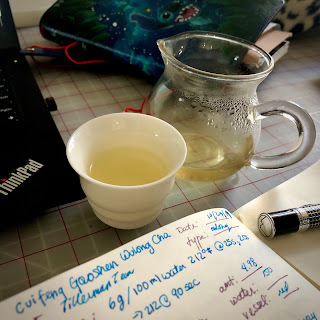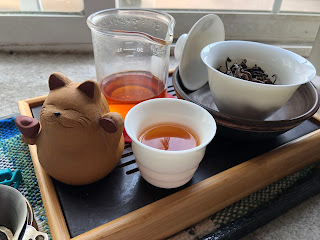Keeping a Tea Journal
I have been a writer all of my life, and I have kept journals over a number of years -- work notes, travel journals, personal diaries, etc. Personally, I find journals useful to track history, to learn things, or to rediscover things I had forgotten.
About 2-3 years ago (2017? 2018?) I decided that I should probably keep a tea journal to track exactly how I brew my tea. If I wanted to get a know a tea, I should probably keep notes like any good scientist & writer.
I started off with a simple notebook with tips I gleaned online. I looked at commercial tea journals and how other people worked their journals. I combined a few elements to make my own.
I discovered that by keeping copious notes, I was doing several things:
- Understanding more how different teas tasted and what flavor profiles different teas had.
- Learning how different elements & parameters came together to make a good cup of tea.
- How hot does the water need to be?
- How will a porcelain gaiwan affect a tea versus a Yixing teapot?
- Will 20 seconds be too long of a steep?
- Learning from my mistakes! Sometimes I brewed it too hot, so I reduced the water temperature for the next steep. Sometimes, I brewed it too long and it was a tad bitter, so I shortened the steep time.
- Understanding what flavor profiles I liked and what teas were more prone to give me those flavors!
I have an inventory of about 226 teas that I've tasted since I started keeping "count".
I have specific journals for:
- Taiwanese teas
- Wuyi Oolongs
- Anxi & Phoenix Oolongs
- Red / Black Teas
- Puerhs
- Chinese Green / Whites / Yellow Teas
- Japanese teas







Comments
Post a Comment